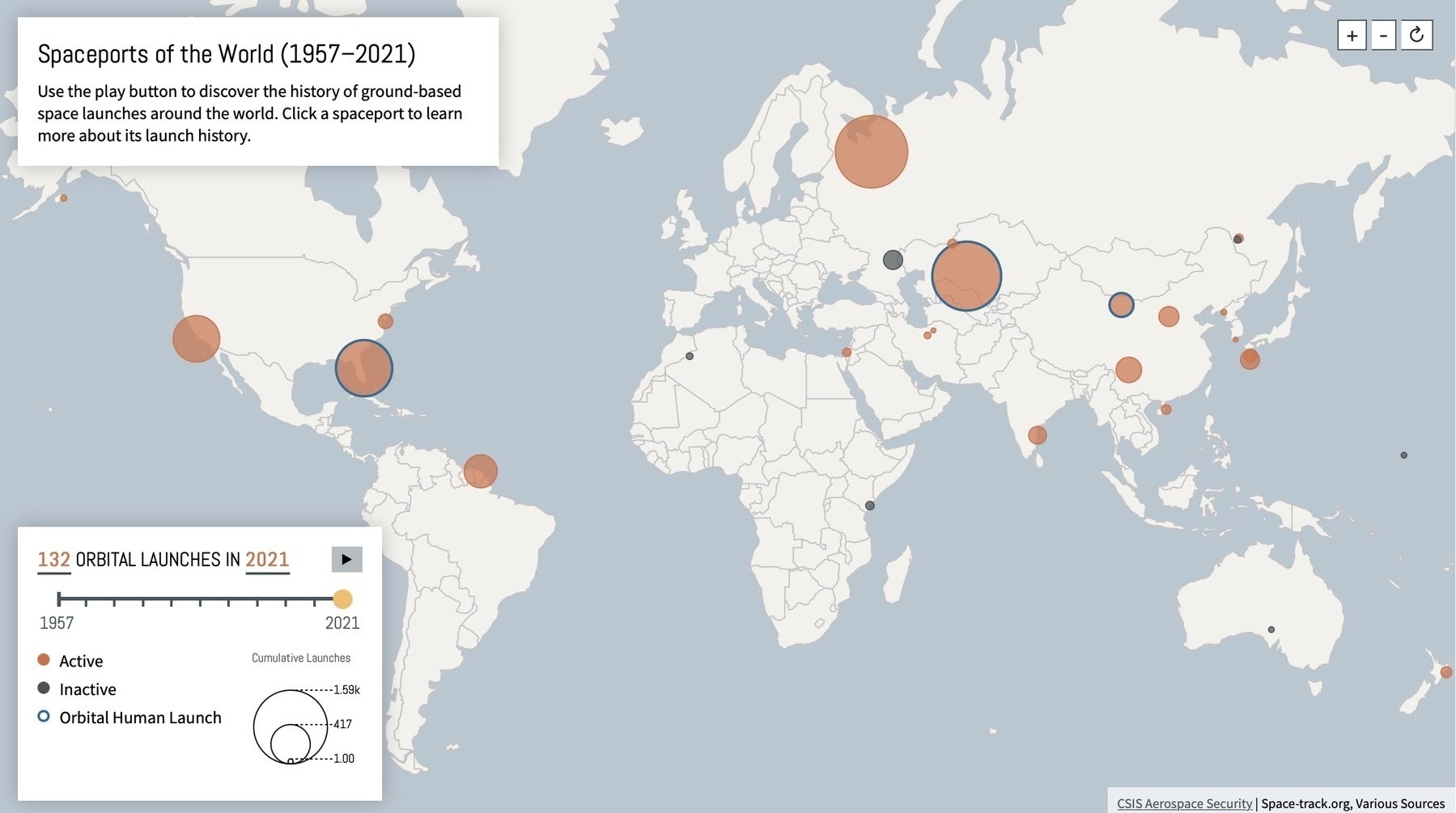Hi! My name is Josh and this is my blog. I used to share on social media but decided that my fragility was too valuable to subject to algorithims and assholes.
-
2021, the year in typography, if you're into that kinda nerdy thing like I am.
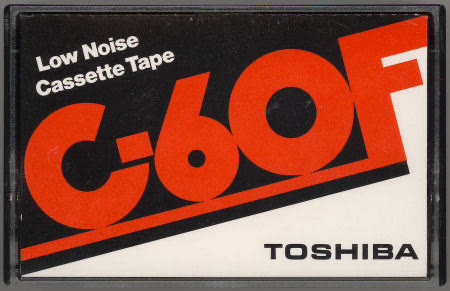
-
Om Malik on the lethal and constant feeling of self-importance we walk around with:
"With all the conversation of breaking free from big social platforms, owning your own digital identity, and being independent, I have been asking myself: how can all of us who have slowly become online performance artists ever be post-social?"
Since March 2020 I've thought a lot about what it means for us to think we're so self-important and what that means for us living in a community with a virus like the spicy cough.
I'm sure it's not only me, but the moment a sense of self-importance enters my soul I start feeling sick. This photo of a chicken with a mullet often helps me get over myself.
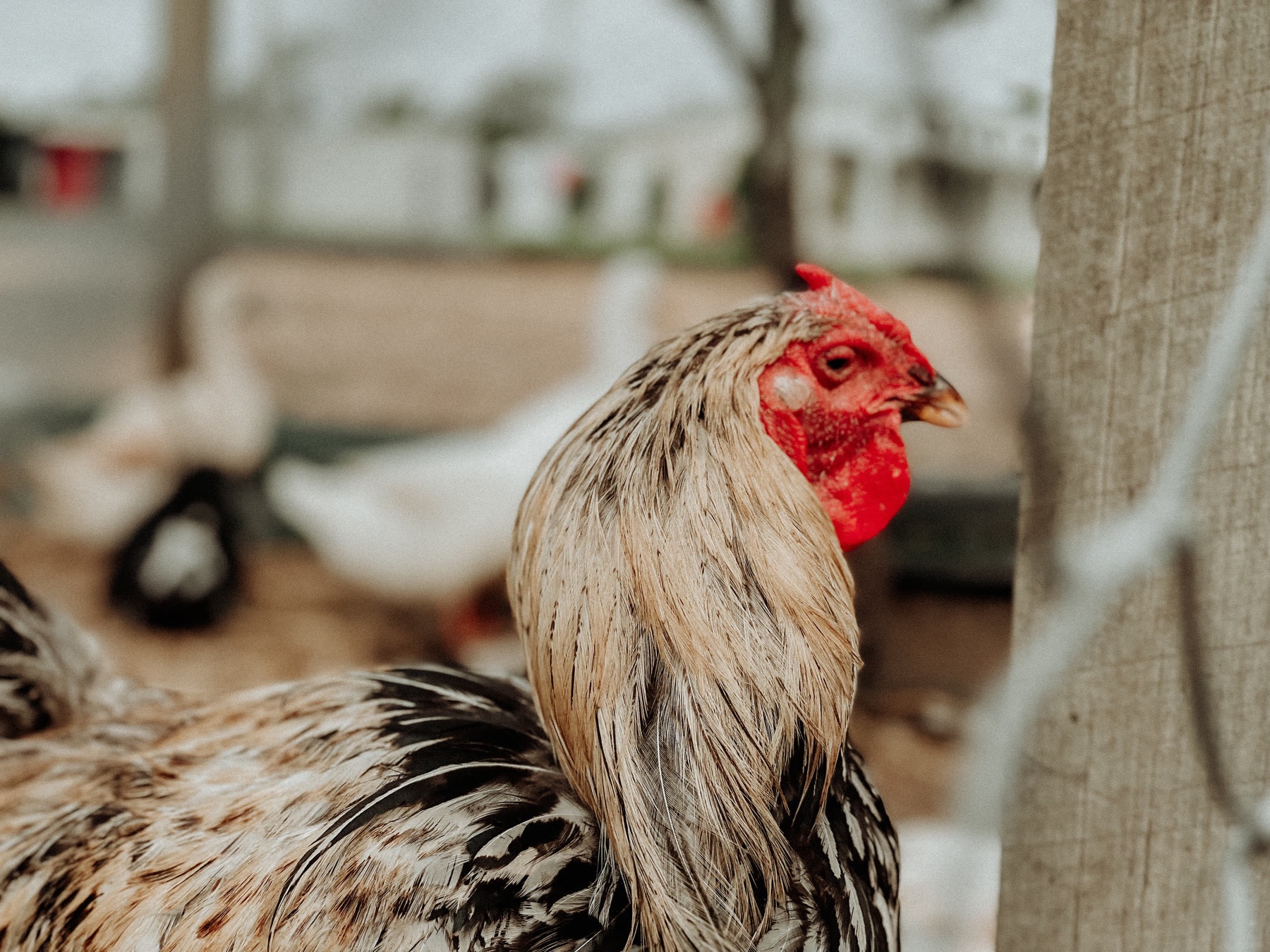
-
“I used to think the top global environmental problems were biodiversity loss, ecosystem collapse and climate change. I thought with 30 years of good science we could address those problems, but I was wrong. The top environmental problems are selfishness, greed and apathy – and to deal with these we need a spiritual and cultural transformation and we scientists don’t know how to do that.”
– Gus Speth

-
My mate @scotty_mcdonald knows Brisbane better than you, and he's writing an email about it called Brisbane is Weird and you ought to subscribe.
-
Where'd I get this rainbow fudge? The Country Non-Binary's Association stall at the markets this morning.
-
The gestation period for new MacBooks is past the two month mark #joy
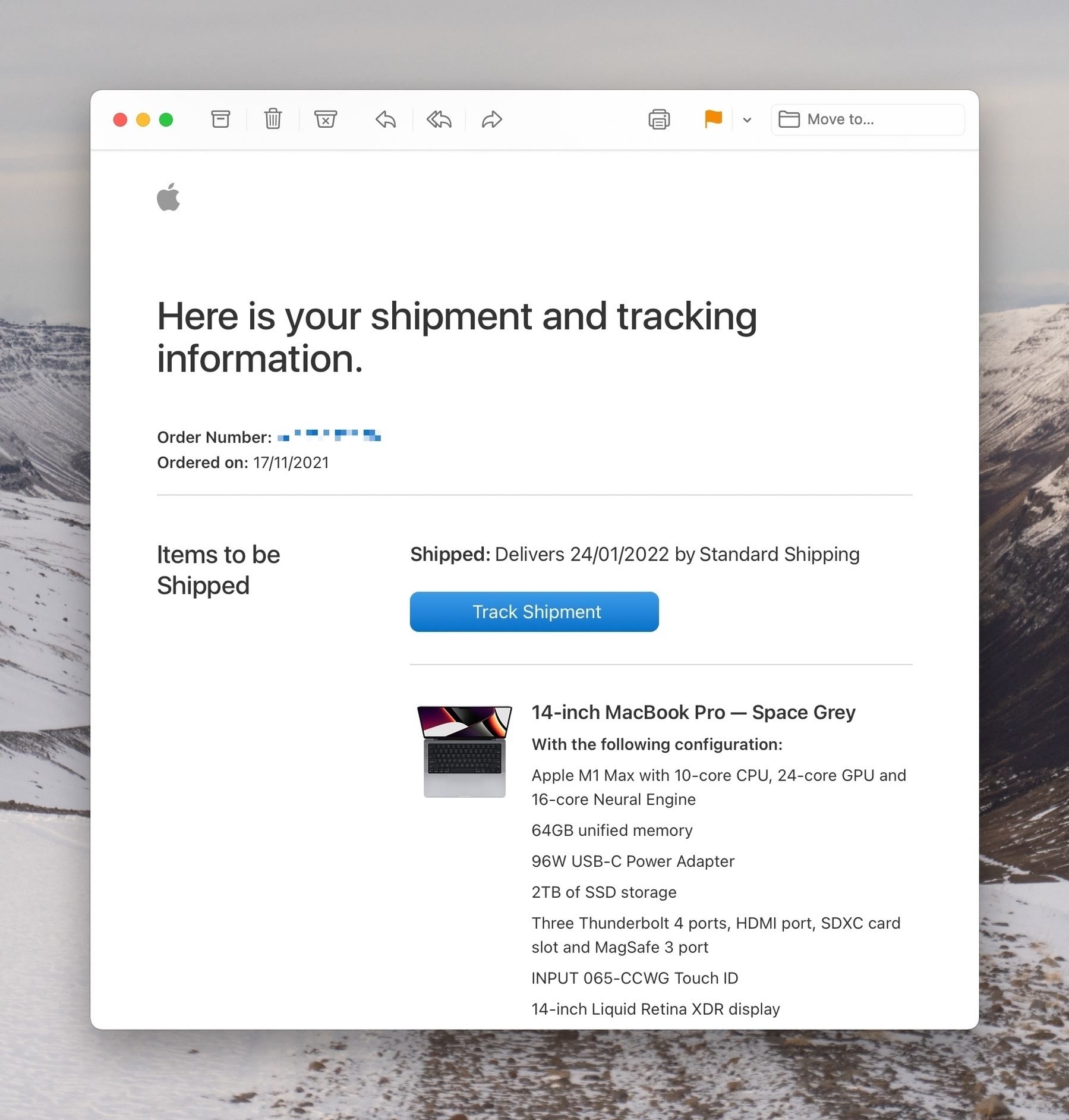
-
15 years of iPhone
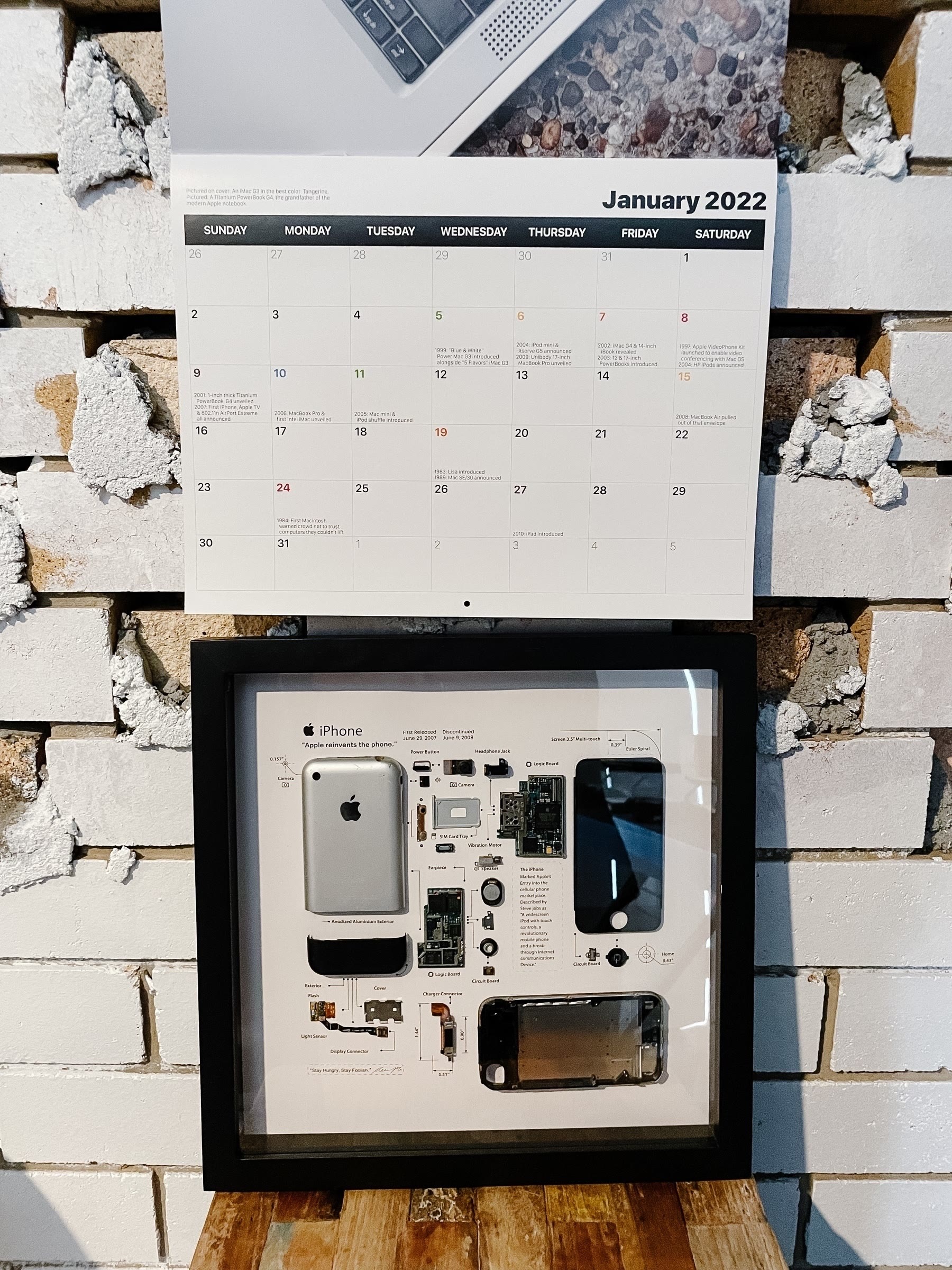
-
Currently reading: Atomic Habits by James Clear 📚
-
Your Animals With Attitude artists were so preoccupied with whether they could make a Super Mario Koala, they didn't stop to think if they should make a Super Mario Koala.

-
Why don’t they make phone screens out of the same glass they make fridge shelves out of?
-
I’m just saying, if you can’t trust people who spend billions of dollars to get fit good looking people to run around aggressively in arbitrary rectangular boxes, who can you trust?
-
Isn’t it wild to imagine that if everyone on the whole planet just stayed at home until February there’d be no Covid.
No deliveries, no takeaway, no construction or maintenance, and in Feb it’s 2019 again.
-
The government response to Covid this month seems akin to trying to stop a large boulder running out of control down a mountain.
I, for one, welcome our new geological overlord.
-
'The most powerful person in the world is the storyteller.'
— Steve Jobs
-
W.L. George in The New York Herald in May 1992 didn't think that "the little girl who sells candles at Grand Central Station" would be too impressed with 2022:
"The year 2022 would have to produce something very startling to interest her ghost"
-
I really thought that by this age I would’ve found Carmen Sandiego. Life is just a series of disappointments.
-
I remember my friend Clifford showing me these photos and us waiting for them to render. Seeing a girl’s naked shoulders was a big deal back then.
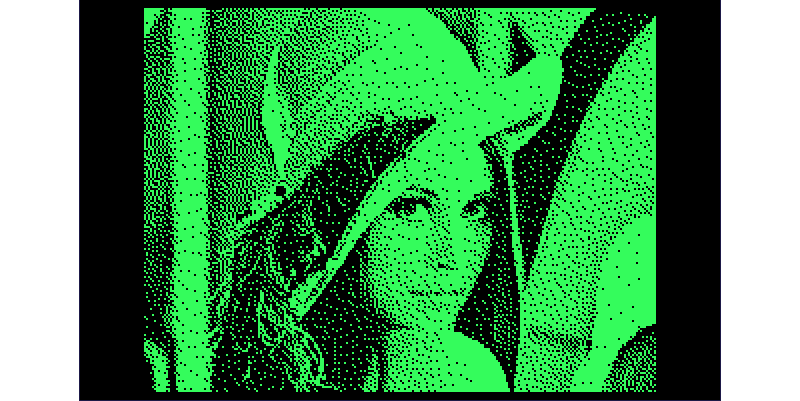
-
1 in 10 Brits will launch their own podcast in 2022 says Acast via @podnews
-
"Cricket and ten-pin bowling ultimately derive from the same sport. It makes sense if you think of the wicket in cricket as analogous to the pins in bowling."
-
Olivia Laing in 2015 on the future of loneliness:
"the cure for loneliness is not being looked at, but being seen and accepted as a whole person"
-
The most disappointing element of modern society is the insistence that all stories (including the news, and celebrity or sport stories) must be completed as soon as possible so we can establish tribal battle lines and figure out if our tribe is winning or losing.
Most stories require hours, if not weeks, or years to bake in the story oven.
It’s highly likely that the stories you’re reading or hearing are actually half-baked and require a lot more time in the oven.
Reject half-baked stories. Reject the need for every story to have a tweet or post attached to it. Embrace slow stories where the storyteller has spent time researching, listening, asking, and they’re delivering a well baked story.
Not some bullshit your mate or a politician tweeted.
-
In 1931 ceilings in movies was impressive.
-
A group of enterprising and nostalgic nerds want to take Blockbuster back.
"Our mission is to liberate Blockbuster and form a DAO to collectively govern the brand as we turn Blockbuster into the first-ever DeFilm streaming platform."
-
There are only 25 blimps in the world, but this guy is trying to bring them back. Can you imagine standing in front of a venture capitalist telling them that you're taking blimps back.
-
The Australian people for the last 30 years: “We want - and will vote for - smaller and governments, with lower taxes, which means less tax revenue, so less money to spend.”
The Australian people in 2020, 2021, 2022: “Arghhh, our government is so small and useless!”
-
The UX on this Small Child Is Terrible, McSweeney’s:
“It’s as if this Small Child was not designed with accessibility in mind”
-
Week one of writing an email about life on the southern Gold Coast is that poor that @revue isn't sure how to communicate it to me.
"Yeah, no-one really cares, kid."
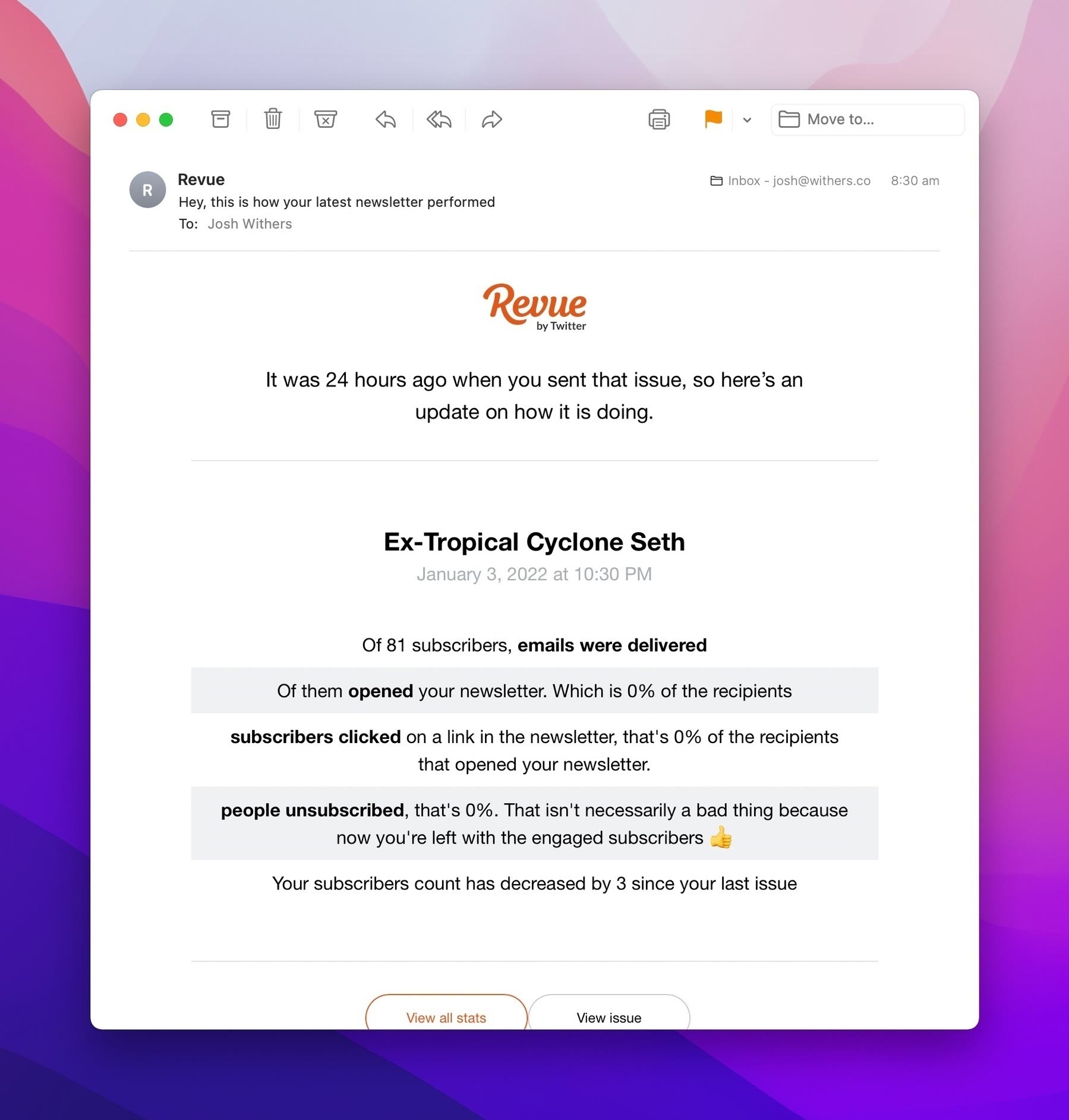
-
I don’t understand magazine publishing in 2022. Today, January 4, a few minutes ago, someone published a pdf to Apple News and it’s about Macs released on November 10 with a release date of next month.
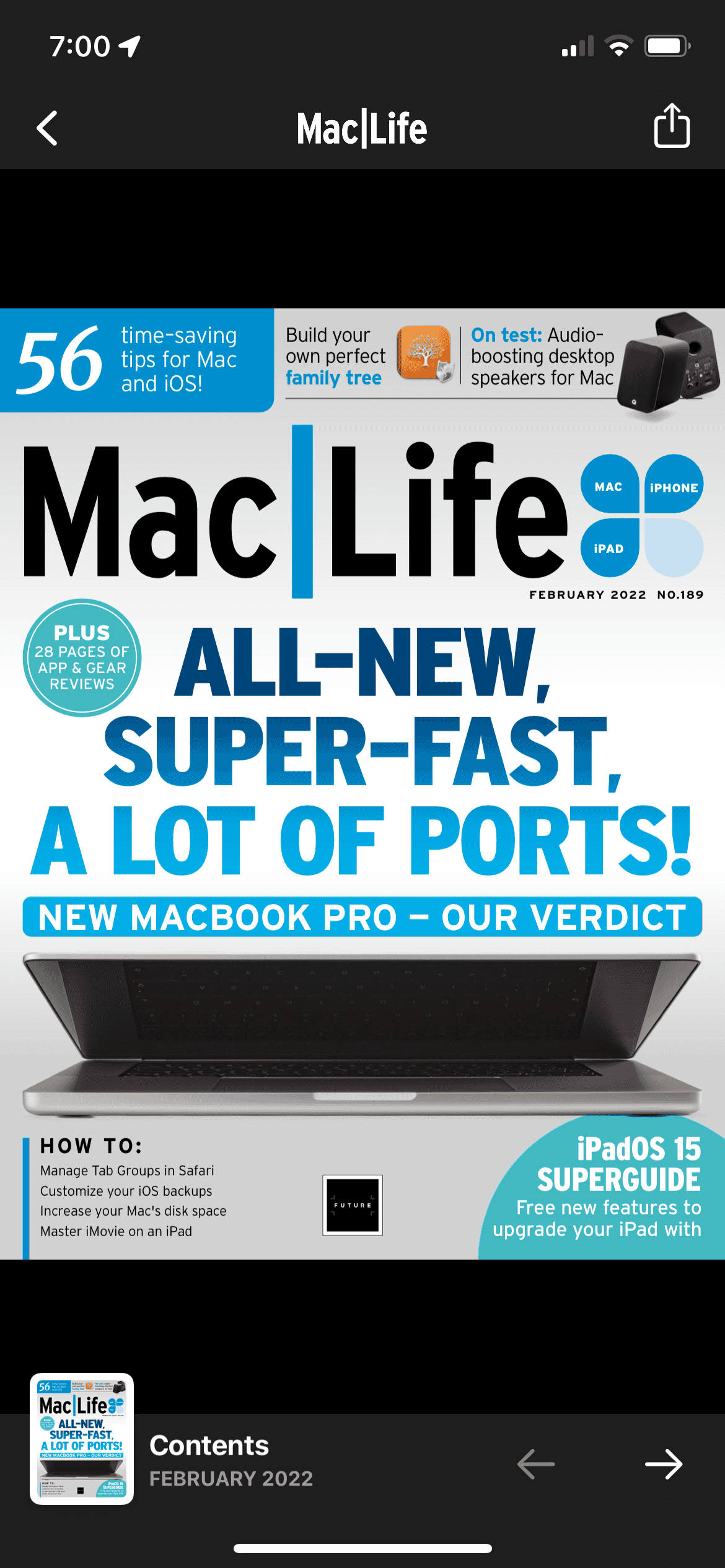
-
One more Tokyo memory. No man has ever made me as happy as this man, as he handed me the nicest coffee my body has ever experienced. Japan is missing from me.

-
Whenever Brittany talks about having more kids, I start thinking about buying us a children buggy like this mum in Tokyo I saw in 2019.

-
I think about this bloke I saw out the front of a Tokyo train station in November 2019 reading a book with a magnifying glass quite a lot.

-
Making art is a form of madness – we slip deep within our own singular vision and become lost to it. There is no musician on Earth that is as committed to their own derangement as Kanye, and in this respect, at this point in time, he is our greatest artist.
-
The trick with life is you have to actually mean it, which can be the hardest part.
-
I've got an old friend and we share ideas with each other. Then years later we share a news article about how someone "stole" our idea.
James Clear's distinction between our sharing ideas and working on them, stings:
"If you're not working hard, ideas don’t matter. The best idea is worthless without execution. If you're already working hard, ideas are crucial. Most effort is wasted on mediocre ideas."
-
In Praise of Conspiracy Theories, David Perell:
It’s easy to hate on conspiracy theories, but what are the best arguments for taking them seriously?
Here's one: At a recent dinner, we started talking about John F. Kennedy assassination theories. One guy remarked that historical conspiracy theories are worth studying because they illuminate so much about the culture of the time.
Studying the JFK conspiracy theories is a fun way to learn about the tension between Cuba and America, America’s rivalry with the KGB, the won’t-stop-at-anything political motivations of Lyndon B. Johnson, the mafia’s influence, and the power of America’s Central Intelligence Agency.
-
Peter O'Dowd and Kalyani Saxena:
"When you were a kid, it seemed like you could walk up to just about anybody and be best friends the next minute. But somewhere along the long, winding road to adulthood, making new friends became an impossibly hard thing to do."
-
Storytime with Seth Rogen is a new fav podcast and it's going on my inputs page. The most recent episode, The Ballad of Mount Doogie Dowler, is a grizzly bear epic!
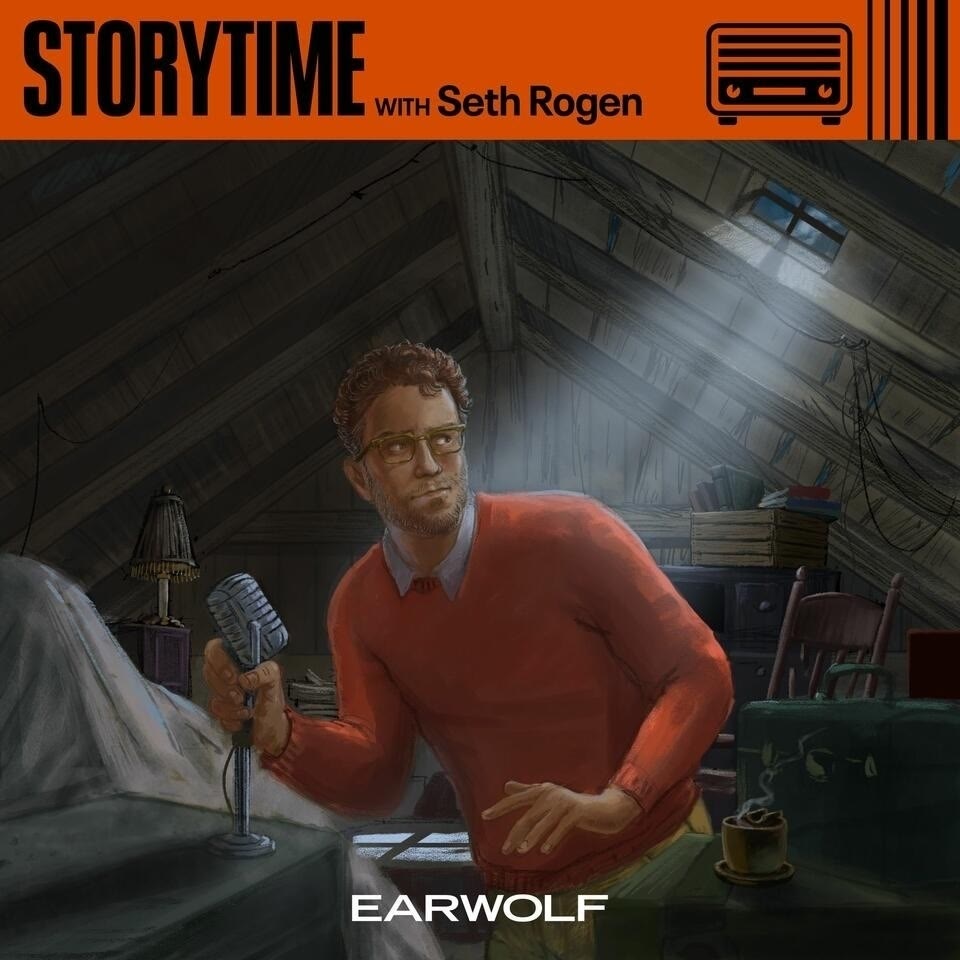
-
Drafting up an email for my #southoftalle email list right now with all my photos from today where Ex-Tropical Cyclone Seth was hitting the Gold Coast beaches pretty hard. Into that kinda thing? email.southoftalle.com to subscribe for free.
-
Gold Coast afternoon

-
Ex-Tropical Cyclone Seth brings some surf to Snapper

-
Ex-Tropical Cyclone Seth is bringing some wind to the waves at Tugun and Snapper Rocks today.
